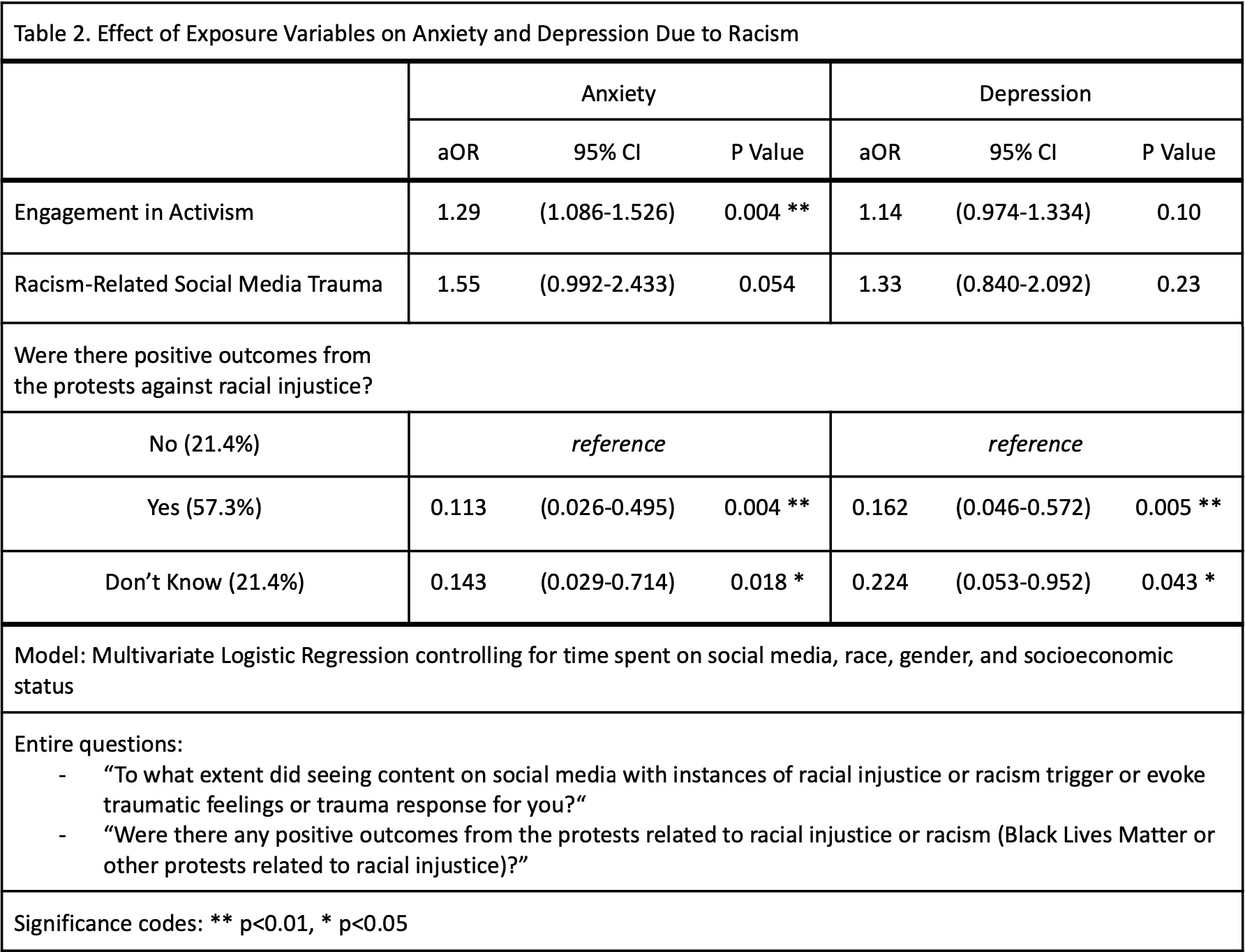Health Equity/Social Determinants of Health
Health Equity/Social Determinants of Health 5
449 - Racial Justice Activism and Adolescent Mental Health: The Effect of Engagement in Activism and Beliefs about its Futility on the Mental Toll of Racism
Saturday, April 29, 2023
3:30 PM - 6:00 PM ET
Poster Number: 449
Publication Number: 449.219
Publication Number: 449.219
Mehek Bapna, Ann & Robert H. Lurie Children's Hospital of Chicago, New York, NY, United States; Shawnese Clark, Ann & Robert H. Lurie Children's Hospital of Chicago, North Potomac, MD, United States; Akram K. Ibrahim, Ann & Robert H. Lurie Children's Hospital of Chicago, Chicago, IL, United States; Juan D. Vintimilla Cordoba, Ann & Robert H. Lurie Children's Hospital of Chicago, Chicago, IL, United States; Alyssa Cohen, Ann & Robert H. Lurie Children's Hospital of Chicago, Chicago, IL, United States; Sarah B. Welch, Northwestern University The Feinberg School of Medicine, Chicago, IL, United States; Nia J. Heard-Garris, Ann & Robert H. Lurie Children's Hospital of Chicago/Northwestern University, Chicago, IL, United States
.jpg)
Mehek Bapna (she/her/hers)
Research Assistant
Ann & Robert H. Lurie Children's Hospital of Chicago
New York, New York, United States
Presenting Author(s)
Background: During the summer of 2020, racial injustice gained national attention. Many teens responded with racial justice activism (RJA) through interpersonal, collective, or online actions. While racism-related content on social media is linked to adverse mental health outcomes among youth, there have been mixed results on the effect of activism on mental health. It is unclear if engagement in RJA is associated with increased trauma from racism-related content on social media. To better understand the psychological impact of RJA, we explored the association between RJA and mental health in teens, in addition to whether teens see RJA as effective, and if that belief is associated with the mental toll of racial injustice.
Objective: To investigate the association between adolescent engagement in activism, anxiety and depression due to racism (including racism-related social media content) and the potential belief in positive change through widespread RJA.
Design/Methods: We analyzed data from a 2022 survey on 13-18 year old US teens, using a linear regression model controlling for time spent on social media and demographics. Outcomes were anxiety and depression due to racism, measured with the GAD-2 and PHQ scales. Exposure variables were efficacy of racial injustice protests, number of activism activities engaged in, and racism-related social media trauma.
Results: Among 117 respondents, 57.3% responded “Yes” there were positive outcomes from the protests related to racial injustice in the summer of 2020, 21.4% said ‘No”, and 21.4% said “Don’t Know”. Those who responded “Yes” and ”Don’t Know” had a lower adjusted odds ratio (aOR) of experiencing anxiety (aOR=0.113 p=0.004 and aOR=0.143 p=0.018, respectively), and depression (aOR=0.162 p=0.005 and aOR=.224 p=0.043, respectively) due to racism, relative to those who responded “No.” Each additional activism activity the teens engaged in was associated with increased odds of experiencing anxiety due to racism by 1.29 (p=0.004), beyond trauma due to social media and demographics. Further, each additional activity was associated with a 0.07 increase (p=0.048) in trauma due to racism-related social media content (1-5 scale).
Conclusion(s): Teens who see the protests as futile are more severely mentally impacted by racial injustice. Therefore, intention in addressing the needs of this subset is an important aspect of reducing the mental health impact of racism. Developing buffers for the slightly increased risk of trauma due to racism-related social media content and anxiety due to racism that teen activists face is an important next step as well.
.jpg)

